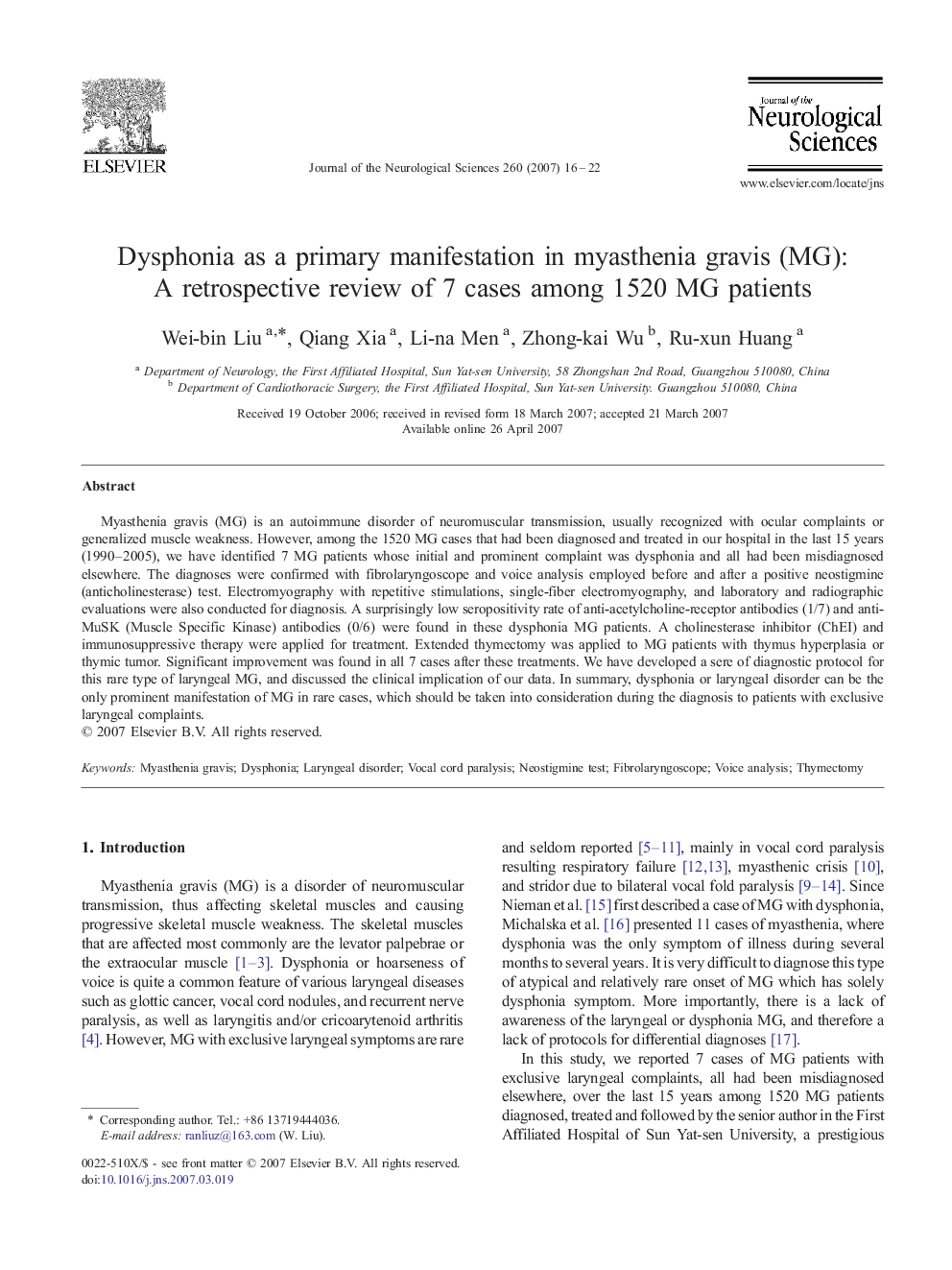| Article ID | Journal | Published Year | Pages | File Type |
|---|---|---|---|---|
| 1916095 | Journal of the Neurological Sciences | 2007 | 7 Pages |
Myasthenia gravis (MG) is an autoimmune disorder of neuromuscular transmission, usually recognized with ocular complaints or generalized muscle weakness. However, among the 1520 MG cases that had been diagnosed and treated in our hospital in the last 15 years (1990–2005), we have identified 7 MG patients whose initial and prominent complaint was dysphonia and all had been misdiagnosed elsewhere. The diagnoses were confirmed with fibrolaryngoscope and voice analysis employed before and after a positive neostigmine (anticholinesterase) test. Electromyography with repetitive stimulations, single-fiber electromyography, and laboratory and radiographic evaluations were also conducted for diagnosis. A surprisingly low seropositivity rate of anti-acetylcholine-receptor antibodies (1/7) and anti-MuSK (Muscle Specific Kinase) antibodies (0/6) were found in these dysphonia MG patients. A cholinesterase inhibitor (ChEI) and immunosuppressive therapy were applied for treatment. Extended thymectomy was applied to MG patients with thymus hyperplasia or thymic tumor. Significant improvement was found in all 7 cases after these treatments. We have developed a sere of diagnostic protocol for this rare type of laryngeal MG, and discussed the clinical implication of our data. In summary, dysphonia or laryngeal disorder can be the only prominent manifestation of MG in rare cases, which should be taken into consideration during the diagnosis to patients with exclusive laryngeal complaints.
